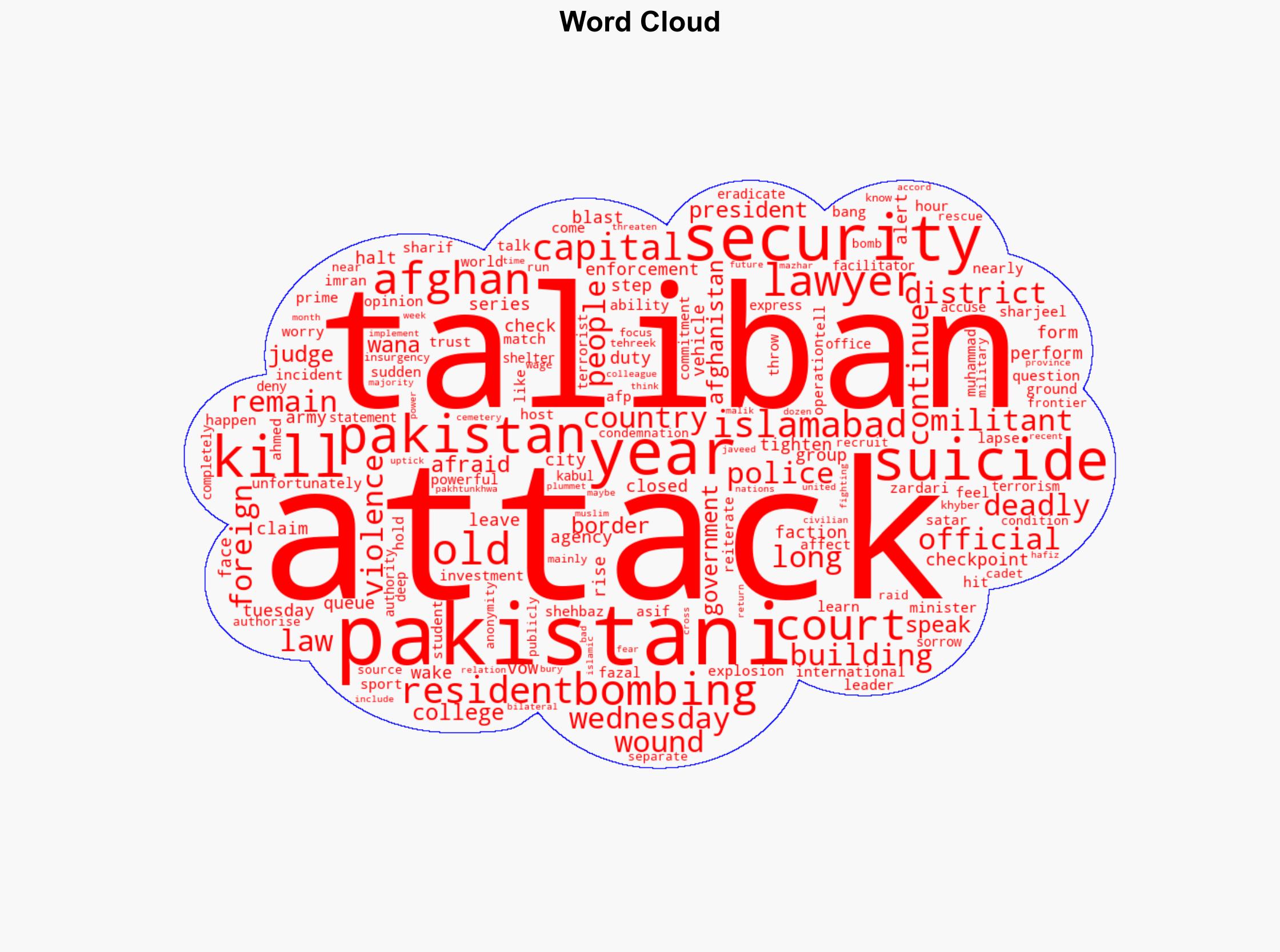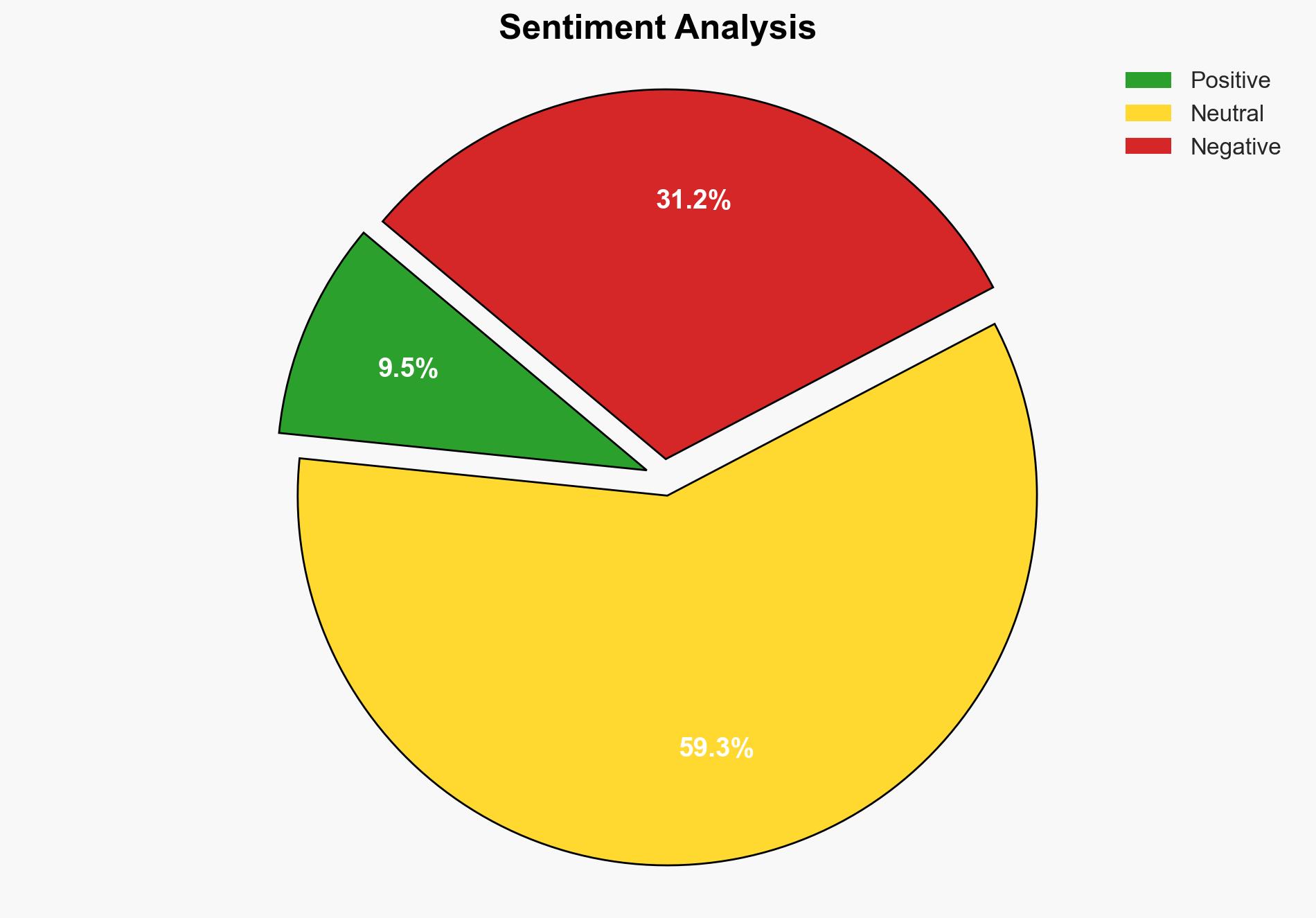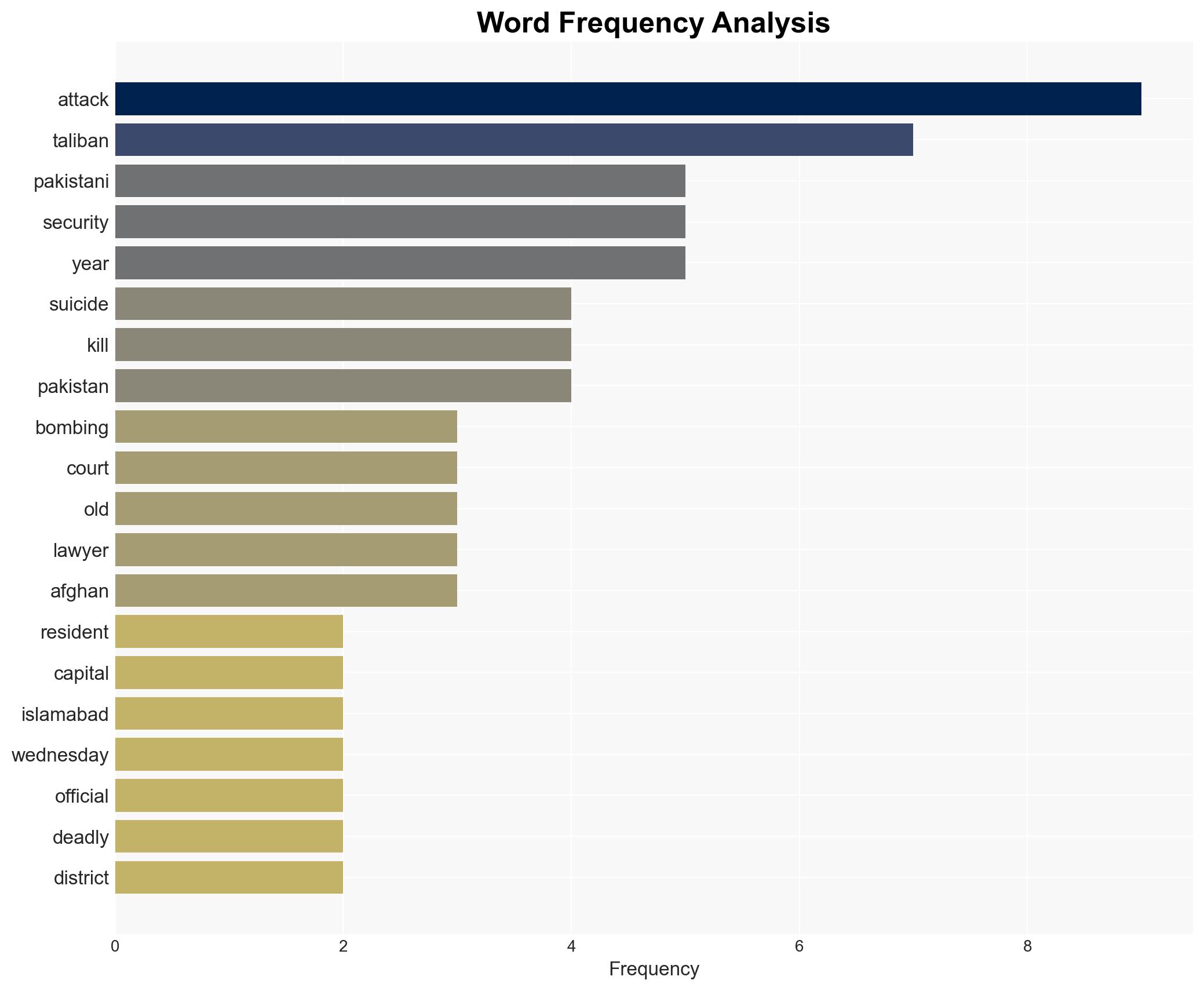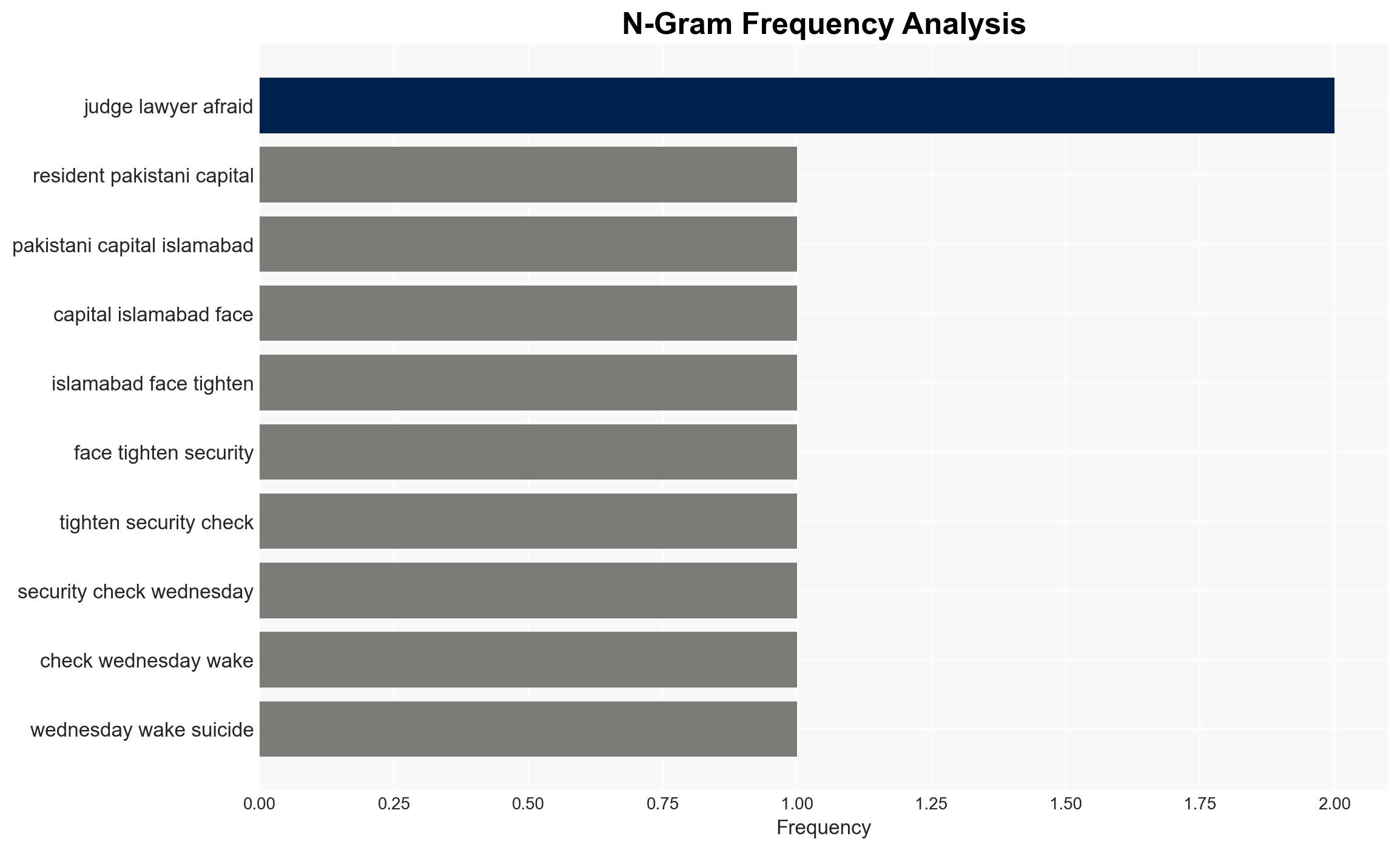Pakistan tightens Islamabad security after suicide blast – Digital Journal
Published on: 2025-11-12
AI-powered OSINT brief from verified open sources. Automated NLP signal extraction with human verification. See our Methodology and Why WorldWideWatchers.
Intelligence Report: Pakistan tightens Islamabad security after suicide blast – Digital Journal
1. BLUF (Bottom Line Up Front)
The most supported hypothesis is that the recent suicide blast in Islamabad is part of a broader strategy by the Pakistani Taliban (Tehrik-i-Taliban Pakistan, TTP) to destabilize the region and challenge the Pakistani government’s authority. The confidence level in this assessment is moderate due to the complex geopolitical environment and the potential for external influences. It is recommended that Pakistan enhances intelligence-sharing with allies and strengthens border security to mitigate further attacks.
2. Competing Hypotheses
Hypothesis 1: The attack is part of a coordinated effort by the TTP to destabilize Pakistan and challenge the government’s authority, particularly in light of recent geopolitical shifts following the Afghan Taliban’s return to power.
Hypothesis 2: The attack is an isolated incident, possibly driven by internal factions within the TTP or other militant groups seeking to exploit political instability for localized gains.
Hypothesis 1 is more likely given the historical pattern of TTP attacks and the strategic timing following the Afghan Taliban’s resurgence, which has emboldened militant activities in the region.
3. Key Assumptions and Red Flags
Assumptions: It is assumed that the TTP has the capability and intent to conduct such attacks. The assumption that the Afghan Taliban’s return to power directly influences TTP activities is also critical.
Red Flags: Potential bias in attributing the attack solely to the TTP without considering other militant groups. The possibility of external state actors indirectly supporting these groups to destabilize Pakistan.
4. Implications and Strategic Risks
The attack could lead to increased political instability, affecting Pakistan’s economic prospects and international relations. There is a risk of escalating violence if the government fails to respond effectively, potentially leading to a cycle of retaliation. The security situation may deter foreign investment and impact Pakistan’s ability to host international events, further isolating the country economically and diplomatically.
5. Recommendations and Outlook
- Enhance intelligence-sharing with regional and international partners to track and disrupt TTP networks.
- Strengthen border security with Afghanistan to prevent cross-border militant movement.
- Engage in diplomatic efforts with the Afghan government to address the issue of militant safe havens.
- Best-case scenario: Successful counter-terrorism operations lead to a reduction in attacks and improved regional stability.
- Worst-case scenario: Continued attacks lead to significant political and economic destabilization, exacerbating regional tensions.
- Most-likely scenario: Sporadic attacks continue, with the government managing to contain but not fully eliminate the threat.
6. Key Individuals and Entities
Shehbaz Sharif (Prime Minister), Asif Zardari (President), Fazal Satar (Resident), Muhammad Imran (Police Official), Sharjeel Ahmed (Student), Hafiz Mazhar Malik Javeed (Lawyer).
7. Thematic Tags
Counter-Terrorism
Structured Analytic Techniques Applied
- ACH 2.0: Reconstruct likely threat actor intentions via hypothesis testing and structured refutation.
- Indicators Development: Track radicalization signals and propaganda patterns to anticipate operational planning.
- Narrative Pattern Analysis: Analyze spread/adaptation of ideological narratives for recruitment/incitement signals.
Explore more:
Counter-Terrorism Briefs ·
Daily Summary ·
Methodology





